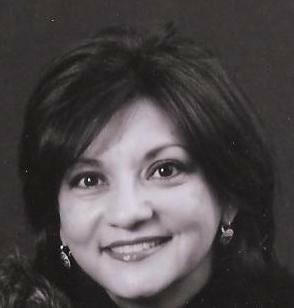CDI Week 2018 Q&A: Physician engagement

MS, RHIA, CCS
As part of the eighth annual Clinical Documentation Improvement Week, ACDIS has conducted a series of interviews with CDI professionals on a variety of emerging industry topics. Priscilla Stuart, MS, RHIA, CCS, is a CDI specialist at Baylor Scott & White McLane Children’s Hospital in Temple, Texas, a member of the 2018 CDI Week Committee, answered these questions. Contact her at Priscilla.stuart1@bswhealth.org.
ACDIS: Can you describe the engagement and collaboration of the medical staff at your organization in CDI?
Stuart: Our pediatric CDI program at Baylor Scott & White McLane Children’s began in 2016 with strong leadership support. Meetings are held with physician leaders of certain departments to discuss engagement, identify education vehicles, and determine documentation opportunities. I am invited to attend monthly medical staff meetings and to participate in patient rounding that offers contact with physicians and other providers.
ACDIS: According to the 2018 CDI Week Industry Survey, only 12% of respondents called their medical staff “highly engaged.” Why do you think so many CDI programs have such trouble engaging the medical staff?
Stuart: CDI programs need to have a team approach that includes leadership. John Boyd, MD, president and chief medical officer, and Madhava Beeram, MD, physician-in-chief, are strong CDI program advocates at our facility. Their commitment and input keep the lines of communication open between the physicians and the CDI program. They also make a point to include CDI at the leadership table, which provides opportunities to enlist support and garner a greater understanding of the documentation challenges facing physicians.
ACDIS: What has been your biggest challenge and most successful approach with gaining physician buy-in?
Stuart: Determining the best way to deliver education is a challenge, so it’s important to stay flexible. Some physicians prefer that I attend a monthly staff meeting. Others prefer that the information is available for them to review when they have the opportunity. Listening to the requests and providing options is the goal.
ACDIS: Does your department have a physician advisor or champion? If so, what has been the result of that relationship, and how much time do they devote to the CDI department?
Stuart: As I mentioned, the CDI program has strong leadership support. I must admit I was surprised to read that only 12% of respondents said their medical staff is “highly engaged.” I feel very fortunate that is not true at our hospital.
ACDIS: Do you have uncooperative/unresponsive physicians, and how do you handle them?
Stuart: It’s important to take a one-on-one approach when I need information. I can attend meetings, send emails, or find a physician during rounds to review my requests if necessary, but the physicians are responsive and they take the time to provide feedback.
ACDIS: Do you have an escalation policy of sorts to deal with them?
Stuart: Baylor Scott & White has a policy that addresses physician response time to queries.
ACDIS: According to the Industry Survey, less than half (44.50%) of the respondents have a 91%–100% physician query response rate and 5.50% of respondents don’t track the rate at all. Do you track the rate? Why or why not? How have you gone about improving your query response rate? What do you recommend to those looking to improve their own response rate?
Stuart: I am happy to report that our query response rate at McLane Children’s Medical Center is 100%.
ACDIS: Do you provide formal education to your physicians, one-on-one/informal coaching, or both?
Stuart: Based on early feedback, I use a combination of formal education and one-on one coaching.
ACDIS: How has the changing reimbursement landscape affected the way you interact with physicians?
Stuart: Our priority as a healthcare system has not changed—our care and treatment of patients is paramount. I support the McLane Children’s Medical Center medical team so that patients and families will view our facility as a destination for compassionate and quality care.
ACDIS: Does your program regularly share CDI data with its physicians (either one-on-one or in a group format)? Does your program leverage publicly reported data in its physician education?
Stuart: Sharing CDI information is encouraged, and I do so monthly. We review publicly reported data and share this information with the leadership team.
ACDIS: Could you tell us about an experience you had winning over a physician to CDI?
Stuart: The CDI program at McLane Children’s Medical Center was established by Vijeta Salunkhe, MD, who was well-versed in how CDI can improve a facility’s documentation, physician data, and patient care. In fact, Dr. Salunkhe won the 2018 ACDIS Achievement Award for Excellence in Provider Engagement. She and I worked together, exchanged ideas, and researched coding issues when I was a member of the HIM team. This collaboration created a mutual respect for the challenges and opportunities we all face in making a difference with CDI efforts.
